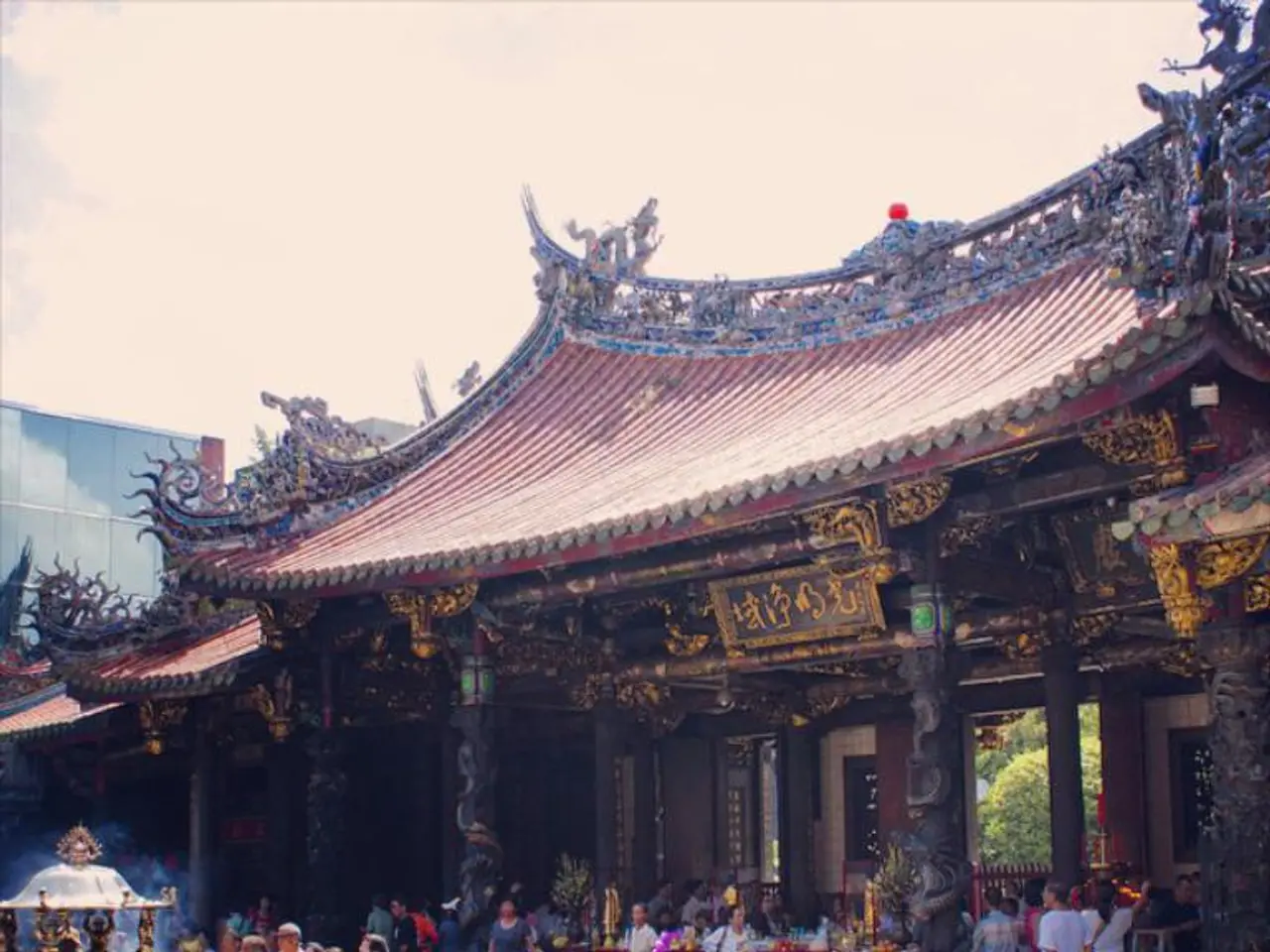Boosting Foreign Tourist Expenditure in Japan Through Experience-Based Travel
In a remarkable turn of events, Japan's tourism industry has witnessed a significant transformation in foreign visitor consumption patterns. According to the Japan Tourism Agency's preliminary report, foreign visitor spending increased by 18.0% to an impressive 2,525 billion yen in the April-June period, surpassing the 20-million mark at the fastest pace ever.
This surge in tourism revenue can be attributed to a strong shift towards experience-based tourism and value-added accommodation services. Foreign visitors are increasingly seeking authentic, immersive cultural experiences beyond traditional sightseeing, such as hands-on workshops, rural tourism, culinary experiences, and wellness activities. This trend is helping diversify and increase tourist spending, as experiential tourism encourages longer stays and a willingness to pay a premium for unique local engagements.
In the accommodation sector, there is notable growth in demand for luxury and comfort-focused value-added services. This includes luxury hotels, ryokans with enhanced amenities, and specialized services catering to upscale travelers. The luxury travel market, in particular, has seen significant growth in both visitor numbers and spending, reflecting a preference for higher-end accommodations that offer distinctive experiences and superior service.
These evolving preferences towards experiential tourism and premium accommodation offerings have contributed to record highs in tourism spending by foreign visitors in Japan. The first half of 2025 saw a 22.9% increase in spending compared to 2024, totalling $32.27 billion.
However, the landscape of foreign visitor spending is not without its challenges. Tax-free sales to inbound travelers at department stores in May dropped by approximately 40%, indicating a shift in spending patterns away from luxury items. Sluggish sales of luxury-brand bags were observed, suggesting a decrease in enthusiasm for purchasing luxury items among foreign visitors.
The decline in tax-free sales at department stores could be a sign of a broader economic trend affecting foreign visitors' spending in Japan. The proportion of foreign visitors' shopping expenses has decreased, with a focus on experiences over material possessions. Enhancing experience-based tourism is proposed as a key strategy to stimulate inbound consumption in Japan.
In conclusion, Japan's tourism strategy is increasingly focusing on attracting visitors interested in unique experience-based travel and luxurious, experience-enhancing lodging. These changes are contributing substantially to rising inbound tourism spending, highlighting Japan's growing popularity as a travel destination.
A traveler taking a photo in front of a traditional Japanese temple might be capturing a memory of an immersive cultural experience, such as a handmade sushi-making class or a rural tour. This preference for lifestyle experiences over traditional sightseeing is driving an increase in foreign tourist spending on finance, such as luxury accommodations and specialized services.
The growing interest in experiential tourism and premium accommodations among foreign visitors has led to a surge in finance allocated towards Japan's lifestyle and travel sectors. This shift in spending patterns could eventually inspire more photo opportunities showcasing Japan's diverse, value-added offerings to the world.




